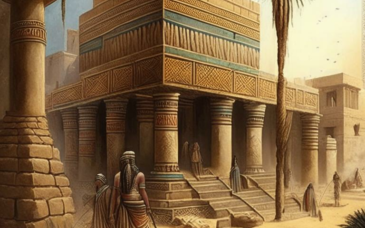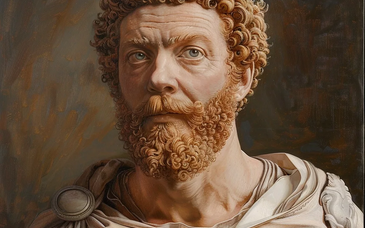Ancient Rome, with its grandeur and historical significance, stands as a monumental chapter in human civilization. This post is your key to unlocking the secrets of Ancient Rome, offering a comprehensive guide to its history, culture, societal structures, and enduring legacy that echoes through the corridors of time.
🏛️ Historical Epochs: Explore the sprawling timeline of Ancient Rome, from its legendary foundation in 753 BCE to the fall of the Western Roman Empire in 476 CE. Witness the rise of the Roman Republic, the age of the Caesars, and the transformative impact of key events such as the Punic Wars, the Roman Civil War, and the Pax Romana.
🗺️ Geography and Architecture: Dive into the geographical expanse of the Roman Empire, stretching from Britannia in the north to Africa in the south. Uncover the architectural marvels that defined Rome, including the Colosseum, the Pantheon, and the Roman Forum. The city's layout, engineering feats, and iconic structures reflect the Romans' mastery of urban planning and construction.
👑 Societal Structures: Delve into the intricate societal structures that defined Ancient Rome. Explore the classes – from senators and patricians to plebeians and slaves. Understand the Roman family unit, religious practices, and the role of women in both public and private spheres. Witness the evolution of governance, from the Roman Republic to the imperial system.
📜 Literature, Philosophy, and Art: Ancient Rome flourished as a center of intellectual and artistic pursuits. Immerse yourself in the works of Roman poets like Virgil, philosophers like Seneca, and the timeless writings of Cicero. Explore the intricacies of Roman art, from frescoes and mosaics to sculptures and intricate jewelry, showcasing the Romans' aesthetic prowess.
⚔️ Military Triumphs and Strategies: The military might of Ancient Rome played a pivotal role in its ascendancy. Uncover the strategies and tactics employed by the Roman legions in conquests and defenses. Explore the lives of legendary military leaders such as Julius Caesar, Scipio Africanus, and Augustus, whose campaigns shaped the destiny of the empire.
🌐 Legacy and Influence: Witness how the legacy of Ancient Rome permeates modern society. From the Roman legal system and the Latin language to architectural inspirations and the enduring influence of Roman mythology, the empire's impact on Western civilization is profound. Explore how echoes of Ancient Rome resonate in politics, governance, and cultural expressions today.
🔍 Archaeological Discoveries: The post takes you on a journey through the archaeological marvels that continue to unveil secrets of Ancient Rome. From the excavation of Pompeii to the ongoing discoveries in Rome itself, these archaeological endeavors offer glimpses into the daily lives, customs, and urban landscapes of the ancient Romans.
📚 Educational Resources and Further Exploration: For those eager to delve deeper, the post provides a curated list of educational resources – books, documentaries, and online platforms that offer in-depth insights into various facets of Ancient Rome. These resources serve as gateways for enthusiasts, scholars, and students to continue their exploration of this fascinating era.
Embark on a virtual time-travel to Ancient Rome, where the echoes of triumphs, the whispers of philosophers, and the footsteps of legionnaires resound. This comprehensive guide invites you to unravel the layers of this extraordinary civilization, offering a panoramic view of a world that continues to captivate and inspire.






